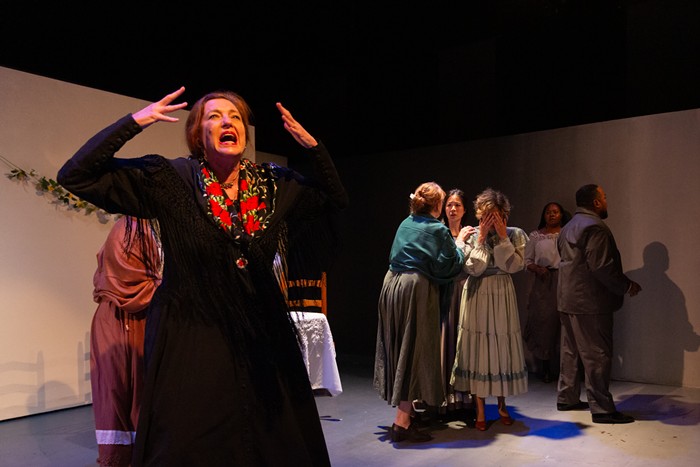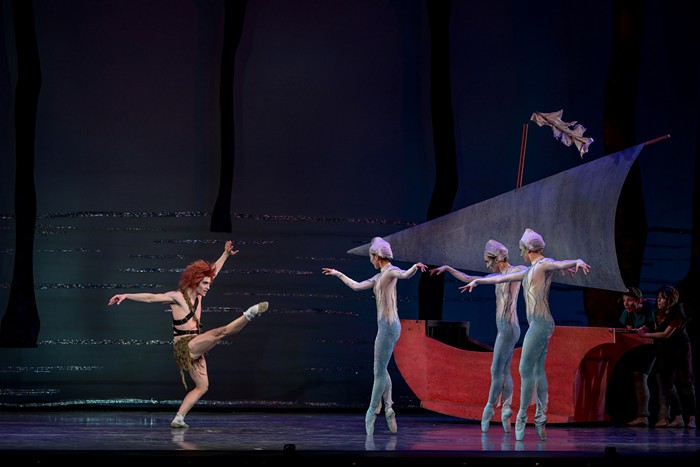e3 Productions at the Electric Company, 2512 SE Gladstone, 232-5955, Thurs-Sat 8 pm, Sun 2 pm, through December 6, $12-15
For such a rainy and temperate city, Portland theaters produce their share of dramas set in the frozen northern climes. Does our relentless Northwest drizzle make directors feel akin with the snowy, insular tundra of Alaska? Or perhaps they favor the tidy emotional puzzles to be solved from setting a play in the barrens of nature, where people go to get away from each other, and if they choose, disappear.
Set in the midst of an Alaskan whiteout, Brilliant Traces commences when a tattered, crazed bride from Arizona, Rosannah DeLuce (Val Landrum) bursts into the cabin of Henry Harry (Ted Schulz), a hermetic cook on leave from his job on an oil boat. Confined to a womb-like room within the depths of a blizzard, the two have no choice but to figure out why the other is there. Henry Harry's character drives the play as he picks apart Rosannah's resolve to not divulge why she left her husband at the altar, got into her car, and drove for four days in a wedding dress. Out of sheer defense Rosannah turns the questions around, and Henry is forced to not only explain his self-imposed exile, but to remember how to socialize. Gradually they sense that the other's answers are related to their own questions they've tried to bury by fleeing to the north--if they can melt each other down enough, each has a key for the other.
Schulz and Landrum slip into sloppy emotional grandstands too often. Despite the shouting and bursts of hyperactivity, though, the acting is effective--Rosannah's insistence that she's not really in the room but in fact floating above it combined with Henry's pathetic need to fix what's broken forms a common pang to "try not to tear everything to shreds."
Set designer Torry Bend has created a marvelously sprawling backdrop behind the actors of transparent walls of snow (it's really very pretty, and I've seen people pass less intriguing designs off as art installations), evoking the wide-open isolation and indecipherable blankness both characters struggle against. ANNA SIMON


















